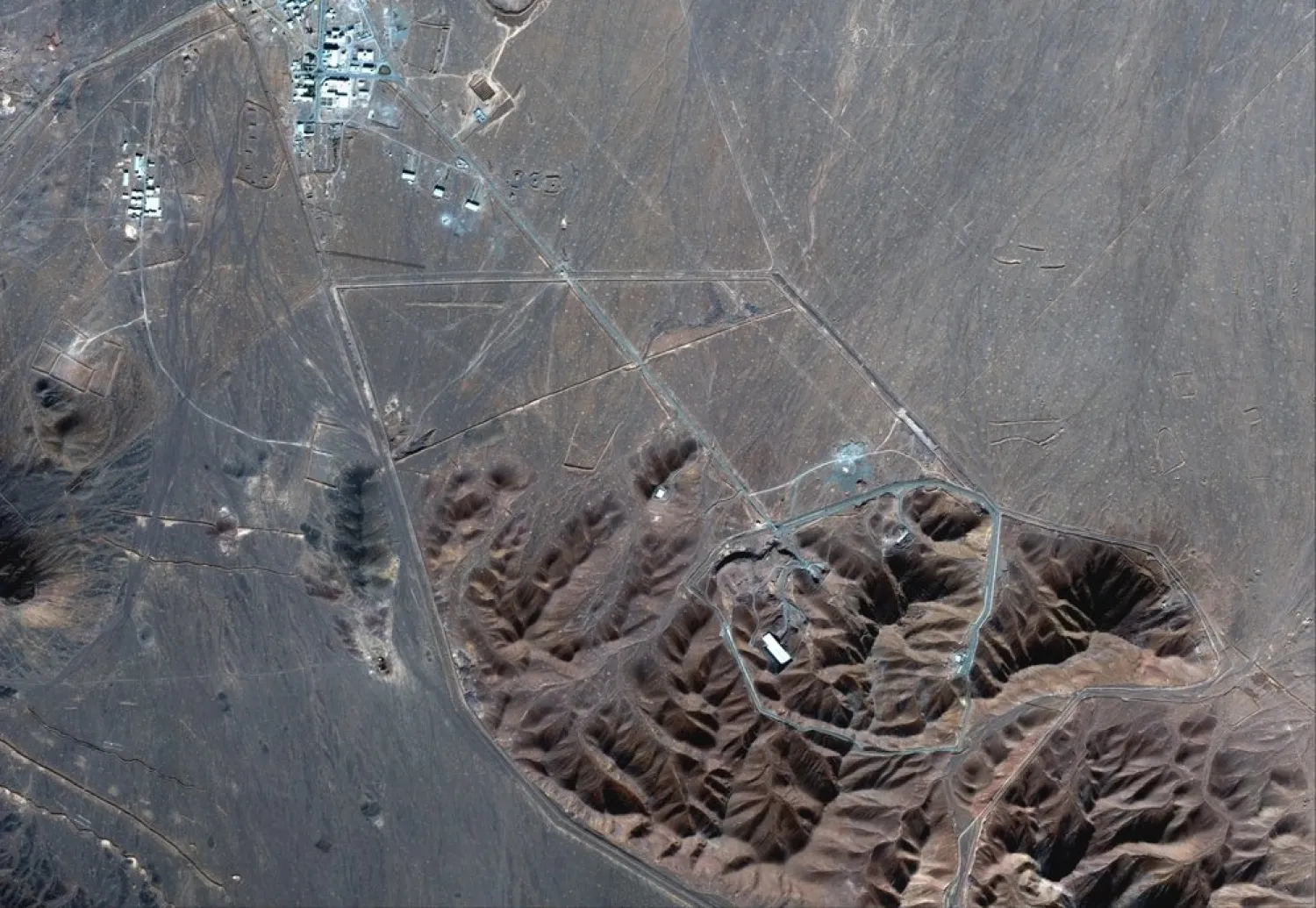Iran has resumed 20% uranium enrichment at an underground nuclear facility, the government said on Monday, breaching a 2015 nuclear pact with major powers and possibly complicating efforts by US President-elect Joe Biden to rejoin the deal.
Benjamin Netanyahu, prime minister of Iran’s arch foe Israel, said the move was aimed at developing nuclear weapons and Israel would never allow Tehran to build them.
The enrichment decision, Iran’s latest contravention of the accord, coincides with increasing tensions between Iran and the United States in the last days of President Donald Trump’s administration.
Tehran started violating the accord in 2019 in a step-by-step response to Trump’s withdrawal from it in 2018 and the reimposition of US sanctions lifted under the deal.
The agreement’s main aim was to extend the time Iran would need to produce enough fissile material for a nuclear bomb, if it chose to, to at least a year from roughly two to three months. It also lifted international sanctions against Tehran.
“A few minutes ago, the process of producing 20% enriched uranium has started in Fordow enrichment complex,” government spokesman Ali Rabiei told Iranian state media.
The UN nuclear watchdog confirmed that Iran had started the process of enriching uranium to 20% purity at its Fordow site.
“Iran today began feeding uranium already enriched up to 4.1 percent U-235 into six centrifuge cascades at the Fordow Fuel Enrichment Plant for further enrichment up to 20%,” the IAEA said in a statement on a report that was sent to member states.
The step was one of many mentioned in a law passed by Iran’s parliament last month in response to the killing of the country’s top nuclear scientist, which Tehran has blamed on Israel.
“Our measures are fully reversible upon FULL compliance by ALL (parties to the deal),” tweeted Iranian Foreign Minister Mohammad Javad Zarif.
Tehran insists it can quickly reverse its breaches if US sanctions are removed. Biden, who takes office on Jan. 20, has said the United States will rejoin the deal “if Iran resumes strict compliance” with the pact.
Nuclear watchdog
The Biden transition team declined comment on Iran’s enrichment move. The White House National Security Council had no comment, and referred queries to the US State Department, which did not immediately respond to a request for comment.
Tehran’s move could further hinder efforts to salvage the pact as its breaches have increasingly worried some of the deal’s other parties, which have urged Iran to act responsibly.
In Brussels, a European Union Commission spokesperson said that the “move, if confirmed, would constitute a considerable departure from Iran’s commitments”.
On Jan 1, the IAEA said Tehran had told the watchdog it planned to resume enrichment up to 20% at the Fordow site, which is buried inside a mountain.
“The process of gas injection to centrifuges has started a few hours ago and the first product of uranium hexafluoride (UF6) gas will be available in a few hours,” Rabiei said.
Iran had earlier breached the deal’s 3.67% limit on the purity to which it can enrich uranium, but it had only gone up to 4.5% so far, well short of the 20% level and of the 90% that is weapons-grade.
US intelligence agencies and the IAEA believe Iran had a secret, coordinated nuclear weapons program that it halted in 2003. Iran denies ever having had one.
In Jerusalem, Netanyahu said Iran’s enrichment decision could be explained only as a bid to “continue to carry out its intention to develop a military nuclear program”.
“Israel will not allow Iran to produce nuclear weapons,” he added.
Shielded by the mountains, Fordow is ringed by anti-aircraft guns and other fortifications. It is about the size of a football field, large enough to house 3,000 centrifuges, but small and hardened enough to lead US officials to suspect it had a military purpose when they exposed the site publicly in 2009.
The 2015 deal saw Iran agree to limit its enrichment in exchange for sanctions relief. The accord also called for Fordow to be turned into a research-and-development facility.
Under Iran’s former hardline President Mahmoud Ahmadinejad, Tehran began enrichment at the 20% level. Israel, which has its own undeclared nuclear weapons program, feared Tehran was building an atomic bomb.
After the discovery of Fordow, the US worked on so-called “bunker buster” bombs designed to strike such facilities. As Israel threatened at one point to bomb Iranian nuclear sites like Fordow, US officials reportedly showed them a video of a bunker-buster bomb destroying a mock-up of Fordow in America’s southwestern desert.









